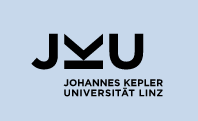Computer Algebra for Multi-Loop Feynman Integrals
Supported by the Austrian Science Fund (FWF),
Project 33530 (2021–2025)
Abstract
In the digital age many areas of mathematics have been algorithmized. Not only simple
calculators but often sophisticated apps for the manipulation of non-trivial formulas are
installed on many smartphones that are used naturally in many areas of life, like in school,
university studies or in business. But this is only the tip of the iceberg. With advanced
computer algebra technologies it is meanwhile possible to simplify complex expressions that
cannot be treated anymore by experts because of their complexity or involved size.
In this research project in close cooperation with the Deutsches Elektronen-Synchrotron
(DESY, Johannes Blümlein und Peter Marquard) we will apply these exciting developments of
algorithmic mathematics to the research area of particle physics. In order to answer or at least
approach fundamental questions such as "What did the universe look like in the first second
after the big bang?", "Do the 4 fundamental forces unite at high energies?", or "Do the
properties of the new particle, called the Higgs-Boson comply with the theoretical
predictions?", highly complicated Feynman integrals have to be simplified that describe the
interaction of elementary particles with high precision.
More precisely, we will simplify challenging expressions of massive multi-loop Feynman
integrals that require several GBs of memory. Here the basic idea is to rewrite the expressions
in a preprocessing step to alternative expressions that fit into the input class of our computer
algebra algorithms. Besides the transformation to more suitable integral representations, it will
be necessary to produce nested sums or coupled linear differential equations (linear systems
with one extra differential operator) that contain the physical problems as solutions. In all
these cases it will be a central task to solve gigantic linear differential equations and
recurrences where the solutions are composed also in terms of new special functions whose
mathematical properties are completely unknown. In order to carry out these monster
calculations, many non-trivial obstacles have to be overcome that will be only feasible with a
new generation of computer algebra technologies. In particular, new algorithms within the field
of symbolic summation and integration but also new technologies from the field of special
functions will be developed. A special challenge will be the implementation of these
sophisticated algorithms in form of stable and highly efficient software packages.
In summary, we plan to simplify gigantic expressions of multi-loop Feynman integrals with the
help of our optimized and novel computer algebra technologies and will process them further
to a form that is urgently needed, e.g., for the Large Hardron Collider (LHC) and its planned
successor at CERN, the FCC. In particular, our results will contribute substantially to gain
further fascinating insight within the world of particle physics
Team
The project is carried out within the
Computer Algebra and Applications
Group and the
RISC-DESY cooperation. The involved
members are
Contact
Carsten
Schneider (project leader)
Research Institute for Symbolic Computation
Johannes Kepler University Linz
Altenbergerstrasse 69
A-4040 Linz, Austria
cschneid@risc.jku.at

